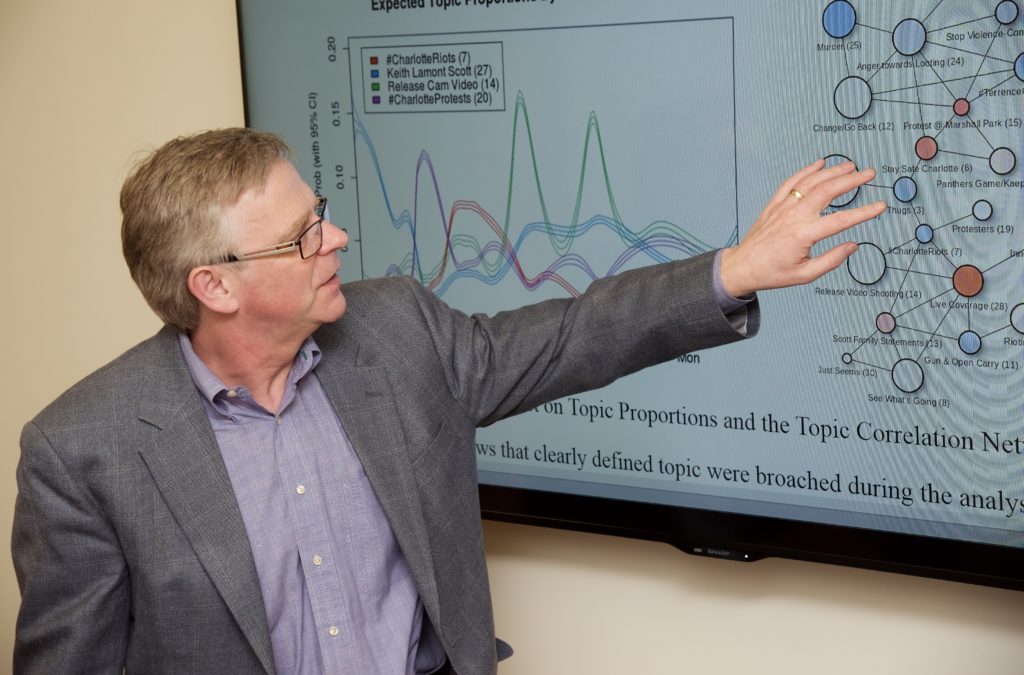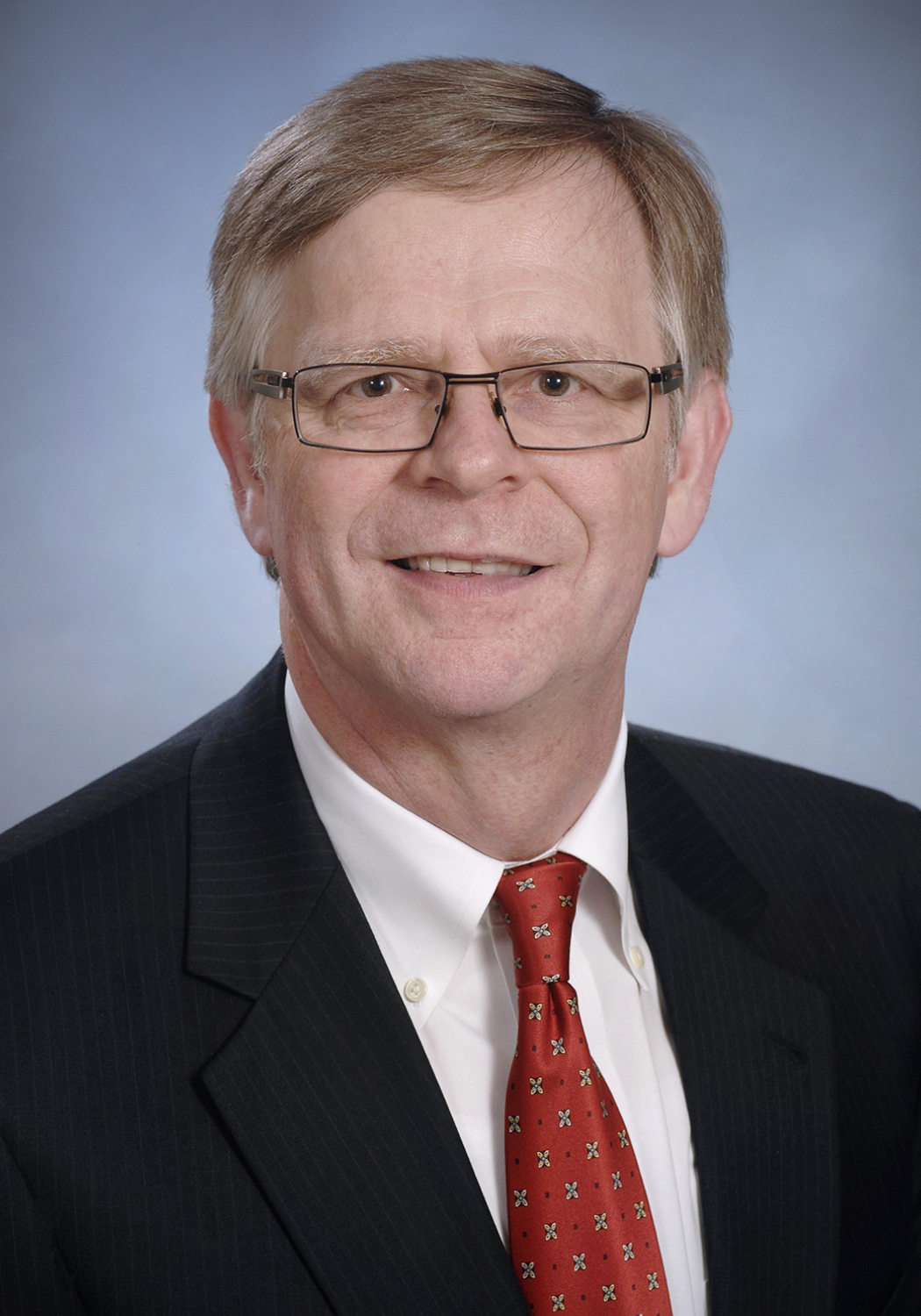UNC Charlotte Knight Distinguished Professor of Public Policy Jean-Claude Thill is named an AAG Fellow by the American Association of Geographers for his immense contributions to geography through research, teaching and mentoring of students and other researchers.
Thill is noted for his substantial research and educational contributions to quantitative human geography and the geographic information science sub-field. He is one of the best-known and most highly regarded scientists in the GIScience sub-field, AAG said.
The data-driven, spatial and interdisciplinary approaches Thill takes help people better understand how social, environmental, economic, policymaking, and other processes are organized and related, such as in space, time and other ways.
“Presently, my interests relate to two broad themes, namely transportation and mobility systems, and spatial knowledge discovery,” Thill said. “In an increasingly mobile world, the ability for people, freight, capital, and ideas to move creates new spatial structures, while erasing others.”
Jean-Claude Thill’s current research focuses on the two broad areas of mobility systems and spatial knowledge discovery. Today’s mobile world means that people, ideas, funding and other elements of society increasingly are in motion, which creates — and erases — spatial structures.
His recent work has advanced topics including impacts of COVID-19, machine learning, traffic and shipping patterns, home-work activity patterns, wireless technologies, and urbanization and sustainable development issues, with almost 100 papers published in peer-reviewed journals. Thill also devotes considerable time to students and has mentored 25 doctoral students.
“I was ecstatically happy when I learned of this recognition,” he said. “It took a while to sink in, given how selective it is for a professional organization that is 6,000 members strong internationally. Because the honor touches on both the breadth and depth of my original scholarship and my mentoring of the next generation of scholars, I feel gratified that my peers found long-term value in the core principles that have framed my work.”
Thill is a professor in the Department of Geography and Earth Sciences and affiliate faculty in the School of Data Science. He also is active with the Infrastructure and Environmental Systems and Public Policy doctoral programs, the Infrastructure, Design, Environment and Sustainability (IDEAS) Center, and the Center for Applied GIScience.
He has written or edited 11 books. The National Science Foundation, the U.S. Department of Energy, World Bank, the U.S. Department of Defense, and the North Carolina Department of Transportation are among the many funders of his research.
“Dr. Thill’s academic stature elevates the reputation of the Department of Geography and Earth Sciences nationally and internationally through the quality of his scholarly achievements and professional service contributions,” said Deborah S.K. Thomas, chair of the Department of Geography and Earth Sciences. “We are thrilled he is being recognized as a Fellow of the American Association of Geographers.”

He previously was named a Fellow of the Regional Science Association International and recipient of AAG’s Edward L. Ullman Award for Significant Contributions to Transportation Geography and the Hirotada Kohno Award for Outstanding Service of the Regional Science Association International. Thill has been chosen to receive the 2022 First Citizens Bank Scholars Medal at UNC Charlotte.
For ten years, he was editor-in-chief of one of the top journals in GIScience and quantitative methods, Computers, Environment, and Urban Systems. He currently serves on the editorial boards of national and international journals of geography, regional science, spatial systems, urban analytics, regional policy, and sustainability. As executive director of the North American Regional Science Council, Thill critically supported a generation of North American quantitative geographers, AAG said.
“AAG Fellows are the standard-bearers of excellence in geography,” said Gary Langham, the association’s executive director. “Their breadth and experience provide key insights and perspectives on the world’s spaces and places. We are grateful for their leadership and advice in advancing AAG and the field.”
For more than 100 years, AAG has contributed to the advancement of geography, with members from nearly 100 countries who share interests in the theory, methods, and practice of geography. Its Fellows address, contribute to, and at times create initiatives to advance the discipline. They advise the association on strategic directions and challenges, and mentor early- and mid-career faculty.
Words: Lynn Roberson








